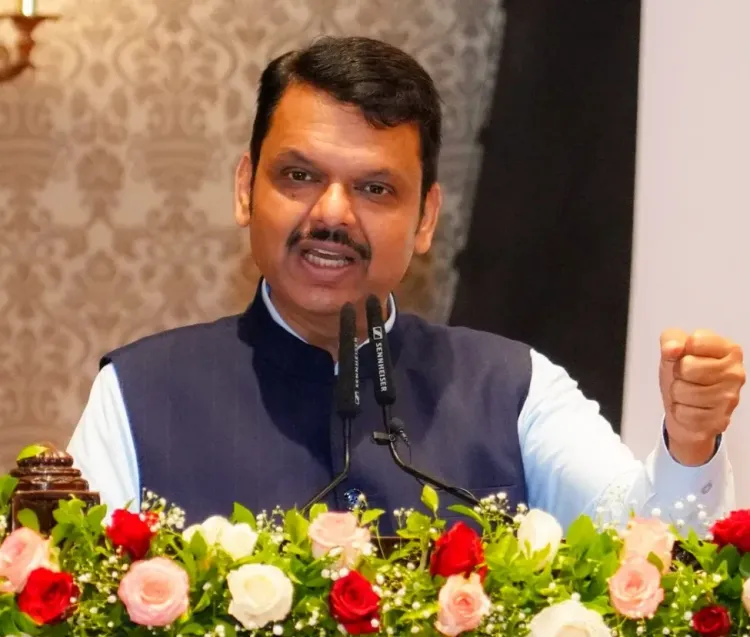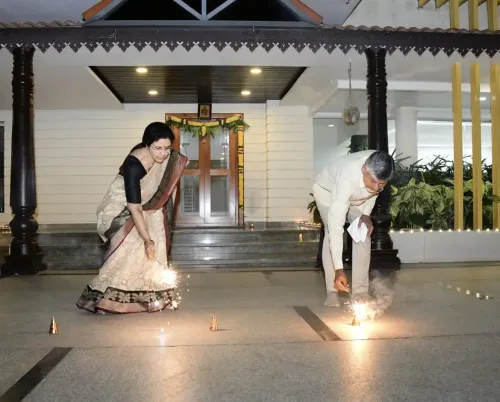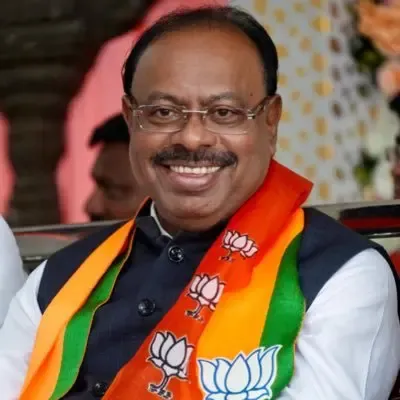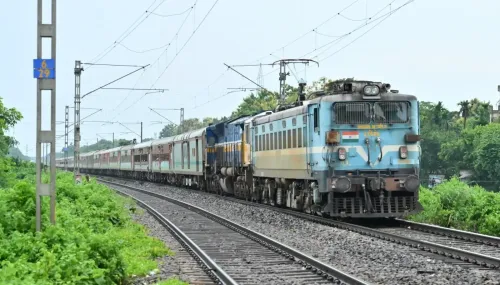Was the Emergency an Attempt to Murder Democracy?

Synopsis
Key Takeaways
- Emergency marked a significant challenge to Indian democracy.
- The role of democracy fighters was crucial in preserving constitutional rights.
- Public outrage led to the withdrawal of the Emergency.
- The government's commitment to honor democracy fighters is ongoing.
- Understanding history is vital for safeguarding future democratic values.
Mumbai, June 25 (NationPress) Maharashtra Chief Minister Devendra Fadnavis stated on Wednesday that the imposition of the Emergency 50 years ago was an attempt to assassinate democracy.
“Nevertheless, during that era, champions of democracy engaged in a fierce struggle to safeguard our nation’s Constitution and democratic values. Thus, today marks a profoundly important day,” he expressed during his speech at the event named ‘A Dark Chapter in Indian History: Constitution Assassination Day 2025,’ held at Raj Bhavan in the company of Governor C.P. Radhakrishnan.
The event also saw the presence of Deputy Chief Minister Eknath Shinde, Deputy Chairperson of the Legislative Council Dr. Neelam Gorhe, and various ministers including Mangal Prabhat Lodha, Ashish Shelar, and Ashok Uike.
Attendees pledged their commitment to safeguarding democracy by signing a participation register.
Fadnavis emphasized that the sacrifices made by democracy advocates during this lengthy struggle are unmatched.
“Had they not resisted dictatorship back then, India and Pakistan might have been indistinguishable today. Their fight is why our democratic framework remains robust today. With the awareness of today’s public, our democracy and Constitution will thrive indefinitely,” he remarked.
In his address, the Chief Minister provided insights into the Allahabad High Court’s ruling on June 12, 1975, against former PM Indira Gandhi, along with the events leading up to and following the Emergency declaration.
“While formulating the Constitution, Bharat Ratna Babasaheb Ambedkar stated in the Constituent Assembly that he was endowing significant power to even the most marginalized citizen through fundamental rights. Anyone attempting to infringe upon these rights could seek justice in the High Court or Supreme Court. However, during the Emergency, the 42nd Constitutional Amendment attempted to assassinate the Constitution by violating the fundamental rights granted by Ambedkar, perpetrated by then-Prime Minister Indira Gandhi,” the Chief Minister asserted.
He highlighted that numerous opposition leaders who opposed the Emergency were imprisoned and their families faced harassment. Programs like the 5, 11, and 20-point plans inflicted injustices upon ordinary citizens.
“My own father was incarcerated for 20 months during that time,” he recounted.
He noted that dissenting voices were silenced, media faced censorship, lands were expropriated widely, and forced sterilizations were implemented.
“In the guise of discipline, a small group orchestrated chaos in the country. These events led to the emergence of autocracy and dictatorship,” he charged.
The Chief Minister emphasized that during this tumultuous time, many great leaders like George Fernandes, Atal Bihari Vajpayee, and Lal Krishna Advani maintained their resistance against dictatorship from prison, igniting a new awakening among the populace.
“When public outrage grew against this oppression, Indira Gandhi was compelled to lift the Emergency. The Emergency devastated many lives; numerous families lost their primary earners to imprisonment for 20-22 months, affecting their financial stability,” remarked the Chief Minister.
He mentioned that the MahaYuti government has been providing honorariums to democracy fighters since 2014, a practice that will now continue indefinitely.
Additionally, Fadnavis, together with Governor CP Radhakrishnan, visited a photo exhibition showcasing the entire Emergency period at the 'Samvidhan Hatya Diwas 2025' event in Raj Bhavan, Mumbai, commemorating 50 years of this dark chapter in Indian history. They also participated in a padyatra during the event.









